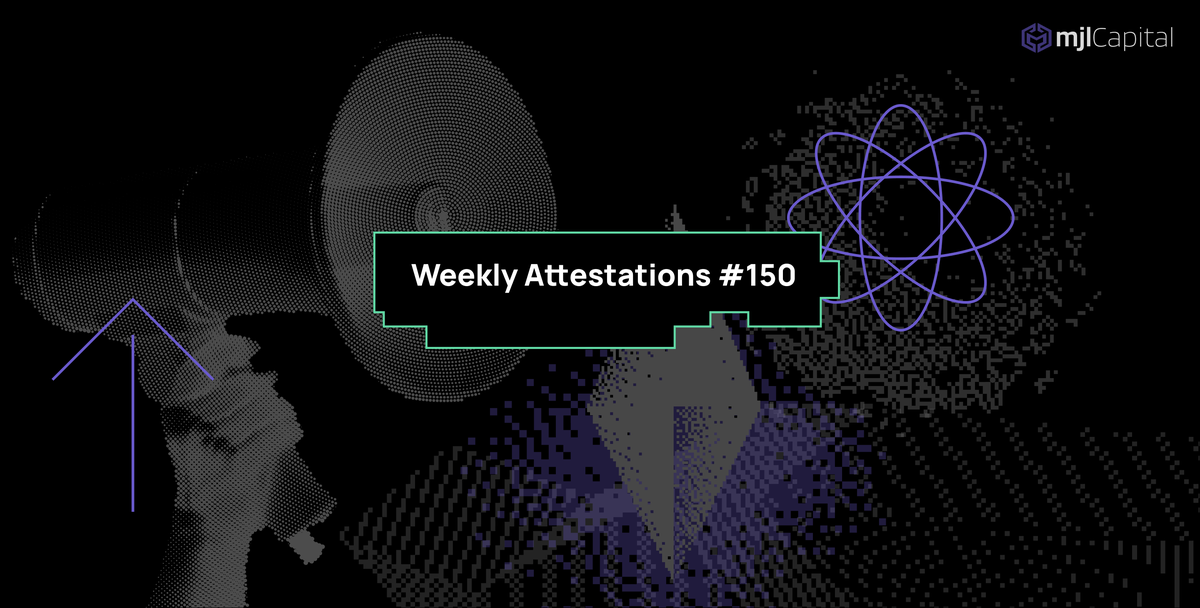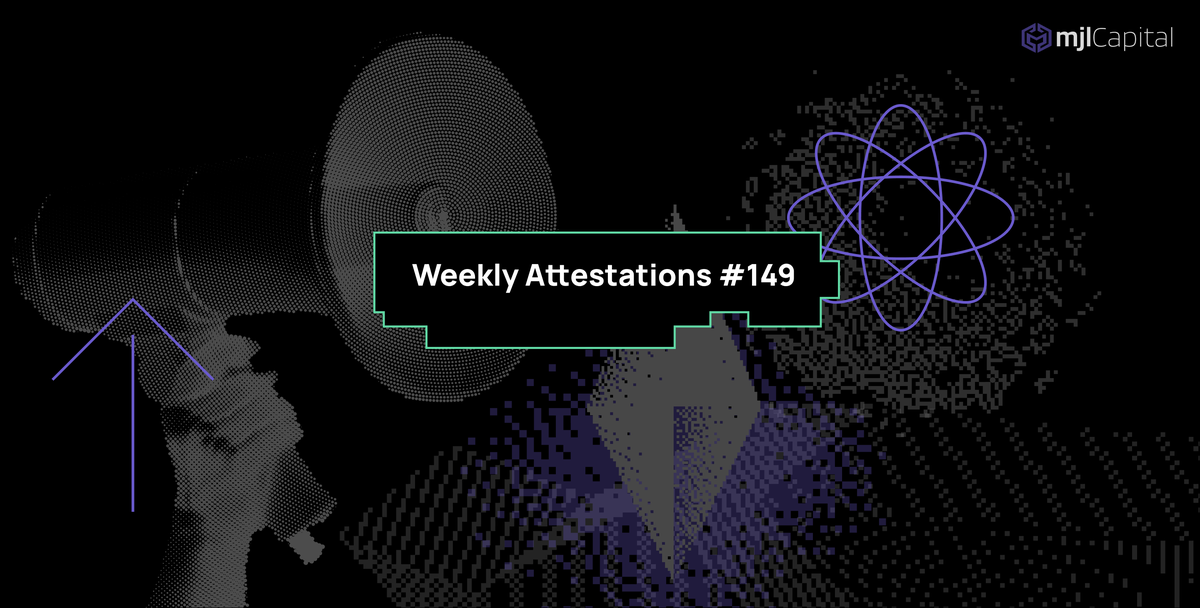Top Stories
Will The Real Satoshi Please Stand Up
HBO's documentary Money Electric: The Bitcoin Mystery promised to reveal the identity of Bitcoin’s elusive creator, Satoshi Nakamoto, but ultimately came up short. Directed by Cullen Hoback, the film speculates that Peter Todd, an early Bitcoin developer, might be Satoshi, pointing to circumstantial evidence such as Todd's interactions with Nakamoto onhttps://coinmarketcap.com/academy/article/what-are-vampire-attacks-in-cryptoline and his similar coding style. However, the crypto community remains unconvinced, with Todd himself denying the claim, stating, “I’m not Satoshi.” Despite its high production value, the film has been criticized for lacking concrete proof and leaning on speculation. As with past attempts to unmask Nakamoto, Money Electric has left the mystery unsolved, while Bitcoin continues to thrive independently of its creator’s identity.
Uniswap Labs Introduces Unichain, Integrating Flashbots' Rollup Boost for Sub-Second Block Times
Uniswap Labs has announced Unichain, a new Ethereum Layer 2 solution built with Flashbots’ Rollup Boost, aimed at achieving sub-second block times. As part of Optimism’s Superchain, Unichain will leverage Optimistic rollups for scalability and interoperability. The platform will feature Uniswap’s decentralized exchange protocols, with V2, V3, and a preview of V4 launching on the testnet by year-end. With native UNI token staking and sequencer revenue payouts, Unichain promises faster, cost-effective transactions. This move signifies Uniswap’s commitment to improving liquidity access and expanding Ethereum's capabilities across interconnected Layer 2 networks.
Memecoin ‘Vampire Attacks’ Rise as Competition Heats Up
As the memecoin frenzy grows, so does the prevalence of “vampire attacks,” where new tokens mimic existing ones on different blockchains, aiming to siphon off users and liquidity. This tactic has recently shaken up two tokens: $MOODENG and $NEIRO. Originally launched on Solana, $MOODENG saw a competing token with the same name appear on Ethereum just days later. The Ethereum version, labeled a "community takeover," surged over 2000%, while the original lost 64% of its market cap. Ethereum co-founder Vitalik Buterin also attracted attention by selling $MOODENG tokens sent to his wallet, fueling the Ethereum token’s popularity. Similarly, $NEIRO experienced volatility when Binance listed a new $NEIRO token, leading it to eclipse the original’s market cap by nearly tenfold. As such attacks become more common, traders are expressing concerns over the sustainability and security of their investments.
Ethereum Staker Revenue Declines Amid Reduced On-Chain Activity
Ethereum's staker revenue saw a decline to $174 million in September, down from a peak of $247 million in March, aligning with broader downturns in crypto market enthusiasm. Despite the lower staker revenue, validators continue to increase, with Ethereum now reaching 1.09 million validators, which underlines sustained trust in the network’s long-term potential. Notably, Ethereum's deflationary mechanism is under pressure; while it has managed an annual supply burn rate of -0.06% post-Merge, supply has shown signs of inflation since April 2024. This shift is accompanied by a drop in active addresses, indicating decreased on-chain activity. As Ethereum adjusts to these trends, balancing validator rewards and scalability will be essential to maintaining its position as a leading smart contract platform.

Memecoins Migrate to Solana as Moonshot App Gains Traction
The Apu Apustaja memecoin, originally on Ethereum, has expanded to Solana to be listed on the popular Moonshot app, which caters specifically to memecoin trading. This move, announced on October 8, allows users to buy Apu tokens directly with Apple Pay via the Moonshot platform. Apu’s multi-chain support is enabled through Wormhole, facilitating the bridge between Ethereum and Solana. Moonshot, dubbed by some as “Robinhood 2.0” for memecoins, has quickly gained popularity since late September. Available on Apple and Google app stores, it provides an accessible trading experience and partners with MoonPay for easy fiat-to-crypto transactions, while also offering users the ability to manage their tokens with non-custodial wallets.

Regulation
Crypto.com Files Lawsuit Against SEC, Disputing Token Classification and Jurisdiction
Crypto.com has initiated legal action against the SEC, alleging the agency has exceeded its regulatory bounds. The lawsuit follows an August Wells notice warning that the SEC might pursue enforcement for Crypto.com’s alleged operation as an unregistered broker-dealer and its handling of secondary-market sales of various "network tokens," including SOL, ADA, BNB, and others. Crypto.com contends that these tokens are similar to bitcoin and ether, which it sells in the same manner, and seeks a court ruling to affirm that it is not an unregistered broker-dealer and that these tokens are not securities. The move aligns with actions by other crypto firms, such as Consensys and Coinbase, which have also challenged the SEC’s stance on token classifications. Crypto.com has additionally requested clarification from both the SEC and CFTC on the regulatory framework for cryptocurrency derivatives. This lawsuit marks the latest clash in the ongoing regulatory tug-of-war between crypto exchanges and the SEC.
FTX to Return $16 Billion to Customers After Bankruptcy Plan Approval
Collapsed crypto exchange FTX has received court approval to execute its bankruptcy plan, enabling it to repay $16 billion to former customers. The decision, granted by Judge John Dorsey of the U.S. Bankruptcy Court for the District of Delaware, follows nearly two years of asset recovery efforts after FTX’s sudden collapse in November 2022. The plan will provide cash refunds, covering at least 118% of the customers’ U.S. dollar account balances as of November 2022. Despite initial expectations for crypto-based returns, investors will receive cash, disappointing some whose assets have appreciated. Former CEO Sam Bankman-Fried, serving a 25-year sentence for fraud, has filed an appeal, alleging bias in his trial. See more: Here's Why FTX Repayments Won't Be Super Bullish for Markets, According to Analysts
Supreme Court Declines Silk Road Bitcoin Case, Paving Way for U.S. to Sell $4.4 Billion Stash
The U.S. Supreme Court has declined to hear a case involving 69,370 Bitcoin seized from the dark web marketplace Silk Road, effectively allowing the government to proceed with plans to sell the $4.38 billion worth of BTC. Battle Born Investments, which claimed rights to the Bitcoin, argued it had acquired them through a bankruptcy estate tied to Raymond Ngan, alleged to be “Individual X” who initially stole the funds. However, lower courts rejected this claim, and with the Supreme Court's refusal, the U.S. government now appears free to liquidate the assets. The U.S. has been moving substantial amounts of the seized Bitcoin, potentially signaling upcoming sales, which some fear may impact market stability.
North Korean Hackers Infiltrate Crypto Firms to Fund Nuclear Programs, UN Report Reveals
A United Nations Security Council report has outlined how North Korea has infiltrated crypto firms to fund its nuclear ambitions, detailing 58 suspected cyberattacks between 2017 and 2023 that netted the country $3 billion. A recent CoinDesk investigation has further exposed that North Korean operatives have been securing jobs within these firms as developers, using fake IDs and well-crafted resumes since at least 2018. Despite warnings from U.S. authorities, companies have unwittingly hired DPRK nationals, who often go unnoticed until anomalies arise, such as irregular work hours or wage transfers to North Korean government-controlled addresses. While newer firms lacking rigorous hiring procedures have been the most vulnerable, even established companies have been duped. These insider positions have allegedly enabled cybercrimes, including the manipulation of blockchain records and hacking of sensitive government and public platforms.
CBDCs Gain Traction Globally but IMF Foresees Diverse Payment Landscapes
With 134 countries, representing 98% of the global economy, exploring central bank digital currencies (CBDCs), the momentum behind digital currencies is undeniable. Notably, 44 nations are now piloting digital versions, including China's advanced digital yuan, which has reached $987 billion in transactions. Despite this growth, the IMF's recent report suggests that widespread adoption of CBDCs is unlikely in the near future. Instead, it predicts a "multi-instrument, multi-infrastructure" system combining public and private solutions like stablecoins, fast payment systems, and e-money platforms. The IMF, which remains neutral on CBDCs, advises central banks to consider digital currency in line with national resources and payment ecosystems. Reflecting this approach, Canada and Australia have both shifted focus from retail CBDCs to broader payment system innovation and wholesale CBDC projects, respectively.
Other Domestic Regulation Updates
- Trump-linked World Liberty Financial to raise $300 million at $1.5 billion valuation
- FBI Creates Ethereum-Based Token To Lure Market Manipulators
- Bitwise Files to Convert Three Futures ETFs to Part Crypto, Part U.S. Treasuries
- Industry Group COPA Launches Campaign to Fight Blockchain Patent Trolls
- U.S. CFTC Subcommittee Makes Recommendations for Using Tokenized Shares as Collateral
- SEC Doubles Down On Crypto Tokens Comprising Securities In Cumberland Complaint
Other International Regulation Updates
- How Japan’s New Prime Minister Plans to Support Web3
- Economists Vouch for Ethereum Founder Vitalik Buterin as Nobel Prize Contender
- FTX Exec Ryan Salame Headed to Prison After Tucker Carlson Video Derails 'Dog Bite' Claim
- Binance Exec Tigran Gambaryan Denied Bail Despite 'Meeting All the Requirements,' Says Family
Pain & Gain
Pain
- $16 million worth of ether from PlusToken Ponzi moves to exchange
- Crypto whale loses $35 million in phishing attack
- EigenLayer Blames Presumed $5.6M Insider EIGEN Dump On Email Compromise
- $147M exits global crypto funds, ending three-week inflow streak
Gain
- ZK-powered Ethereum Layer 2 Scroll debuts plans to airdrop SCR governance token
- Babylon Attracts $1.42B In BTC Over 10 Bitcoin Blocks
- Linea proposes decentralization roadmap including proof-of-stake model for block validation
- Optimism rolls out fifth airdrop, allocates 10.3 million OP tokens to 54,000 Superchain users
- MicroStrategy eyes trillion-dollar valuation in bitcoin bank endgame, Michael Saylor tells Bernstein
- Who Is Satoshi? HBO Documentary Claims To Know And Sparks Polymarket Bets
- Binance To Debut Pre-Market Trading For Scroll’s SCR Token On Oct. 11
Important Legal Notices
This reflects the views MJL Capital LLC (“MJL”), but it should in no way be construed to represent financial or investment advice. Nothing in this correspondence is intended to constitute or form part of, and should not be construed as, an issue for sale or subscription of, or solicitation of any offer or invitation to subscribe for, underwrite, or otherwise acquire or dispose of any security, including any interest in any private investment fund managed by MJL. Any such offer may only be made pursuant to a formal confidential private placement memorandum of any such fund, which may be furnished to potential investors upon request and which will contain important information to be considered in connection with any such investment, including risk factors associated with making any investment in any such fund. Further, nothing in this correspondence is, or is intended to be treated as, investment or tax advice. Each recipient should consult their own legal, tax and other professional advisors in connection with investment decisions.
Domenic Salvo is a Managing Partner at MJL Capital, helping lead Portfolio Research and Investor Relations.




